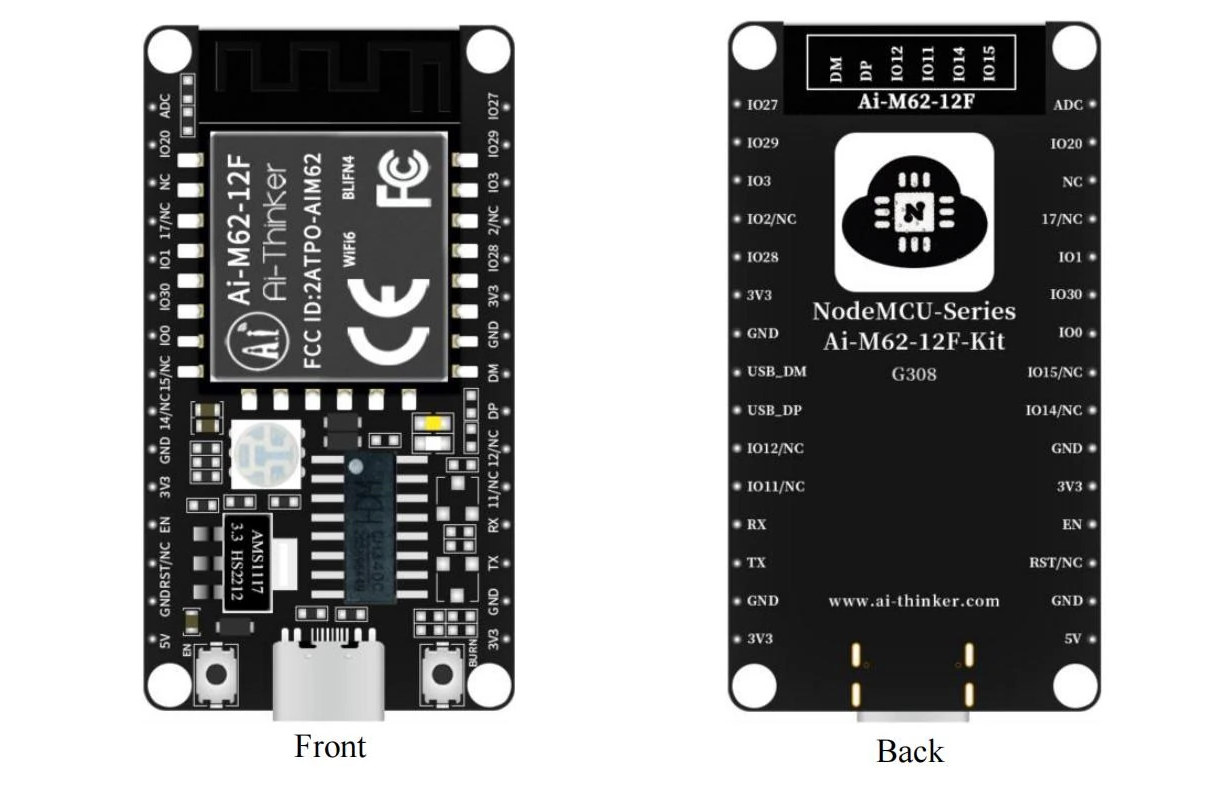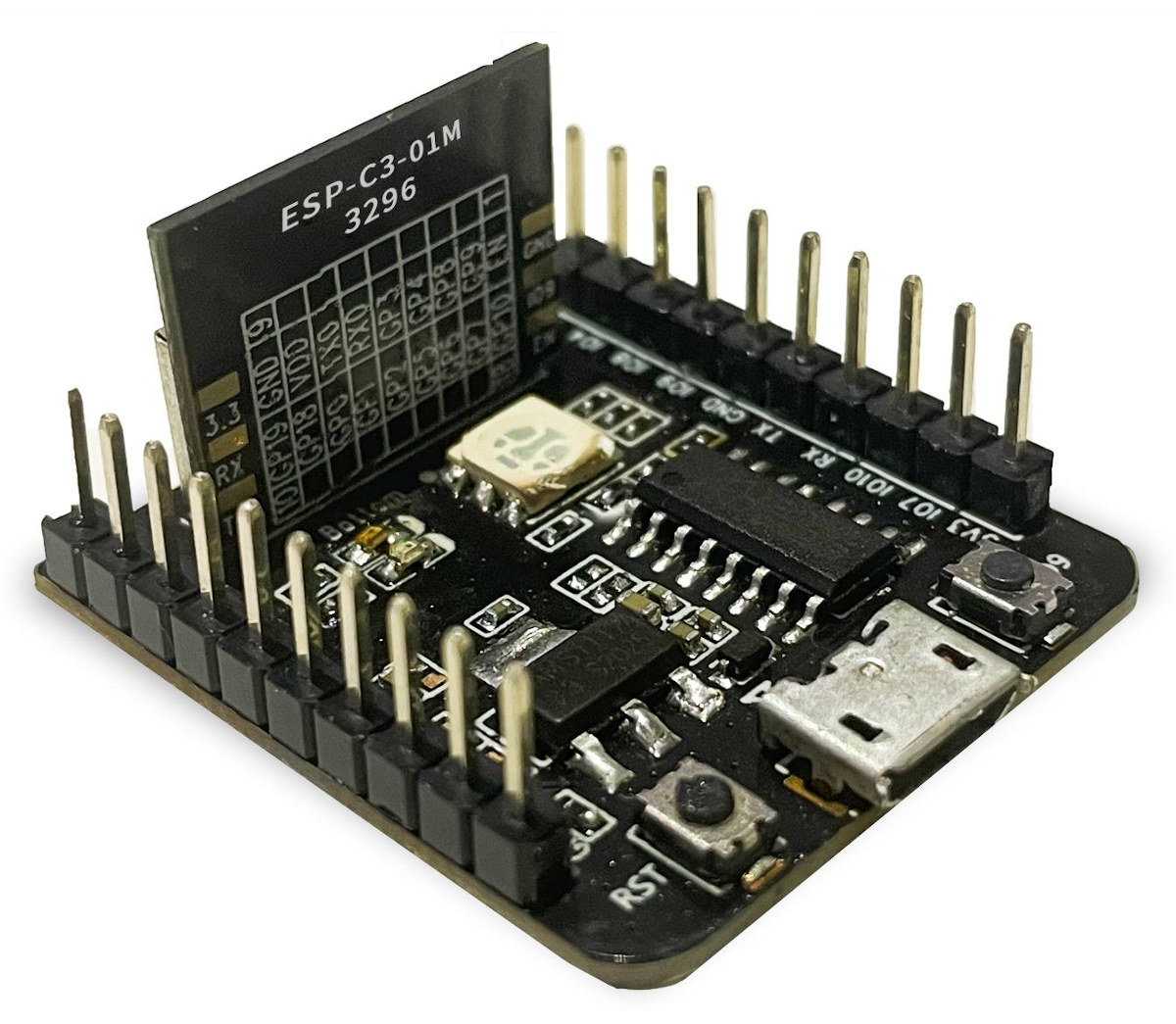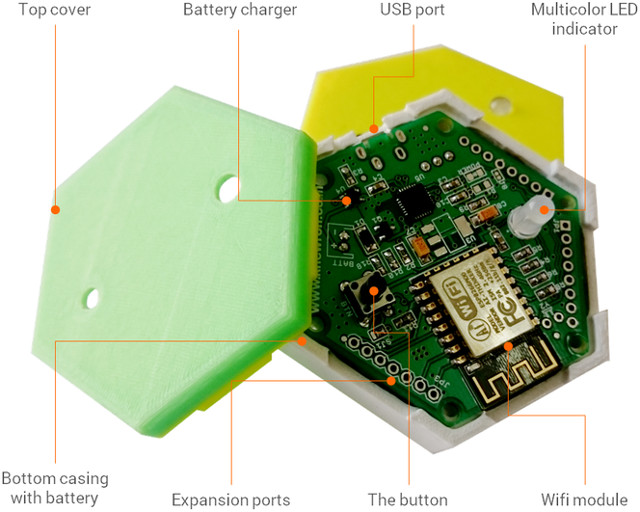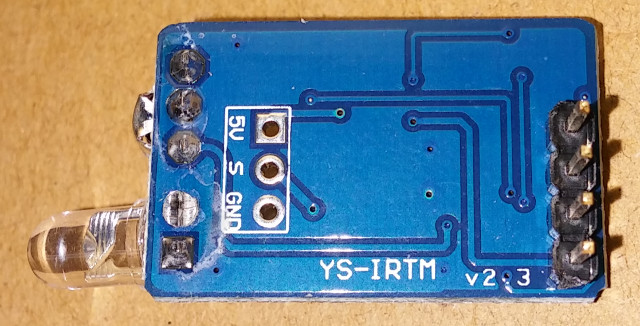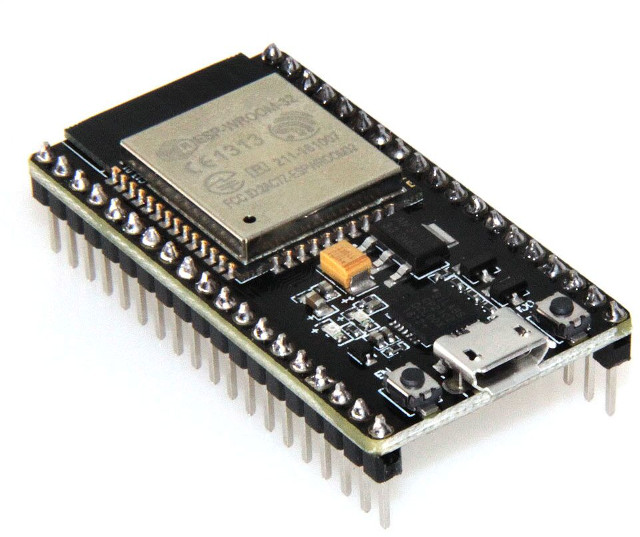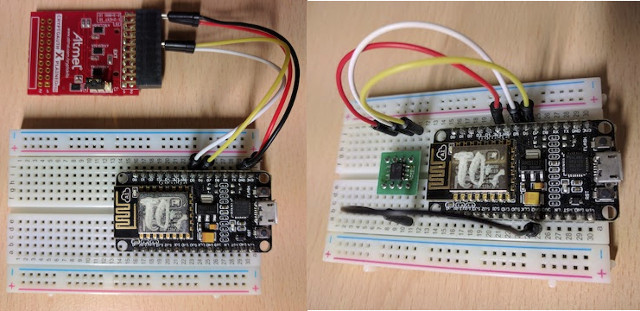Ai Thinker Ai-M62-12F-Kit is a development board based on Bouffalo Lab BL616 RISC-V microcontroller with 2.4 GHz WiFi 6, Bluetooth 5.2 LE, and an 802.15.4 radio (Zigbee/Thread), plus thirty I/O pin for expansion. We had already covered the tiny Sipeed M0S module based on BL616 MCU earlier this year along with its M0S dock board that exposed eight GPIO pins via a 12-pin header, and the “NodeMCU” Ai-M62-12F basically offers the same features but with many more I/Os thanks to two 15-pin headers, as well as an RGB LED and two user-programmable LEDs. Ai-M62-12F-Kit specifications: MCU – Bouffalo Lab BL616 32-bit RISC-V (RV32IMAFCP) microcontroller @ up to 320 MHz (384 MHz overclocked) with 480KB SRAM, 4MB flash, 2.4 GHz WiFi 6, Bluetooth 5.2 dual mode, and 802.15.4 radio (Zigbee) Antenna – PCB antenna USB – 1x USB Type-C port for power and programming I/Os – 2x 15-pin headers with Storage […]
Ai-Thinker Hi-series WiFi modules support HarmonyOS (Sponsored)
Ai-Thinker Hi-series WiFi modules feature Hisilicon Hi3861/Hi3861L 32-bit RISC-V microcontroller with 2.4GHz 802.11b/g/n WiFi 4 and support for HarmonyOS for IoT projects. The new Hi-12F module even got certification for HarmonyOS “S identification” meaning the Hi-12F module supports HarmonyOS Connect for the Smart Home which used to be called “Works With HUAWEI HiLink” or “Powered by HarmonyOS”. Some of the highlights for Ai-Thinker Hi-series WiFi module include: Integrated high-performance 32-bit RISC-V microprocessor (Hi3861V100/Hi3861LV100) with 352KB SRAM, 288KB ROM, and 2MB Flash IEEE 802.11 b/g/n WiFi 4 up to 72.2Mbps @ HT20 MCS7 with STA and AP modes (Up to 6 clients in AP mode). Baseband and RF circuits with power amplifier PA, low noise amplifier LNA, RF balun, antenna switch, power supply management Multiple Security Capabilities with a built-in eFUSE, support for secure storage, and hardware ID Rich peripheral interfaces with UART, SPI, I2C, GPIO, ADC, PWM, I2S, SDIO, etc… […]
NodeMCU ESP32-C3 WiFi & BLE IoT boards show up for about $4
ESP32-C3 RISC-V IoT processor with 2.4 WiFI and Bluetooth LE 5.0 was unveiled in December 2020, and Espressif Systems’ own ESP32-C3-DevKitM-1 board has been available in limited quantities as an “engineering sample”. But now I’ve noticed third-party NodeMCU ESP32-C3 boards are being sold on Aliexpress for around $4 with ESP32-C3S_Kit and ESP-C3-01M-Kit both based on AI Thinker ESP32-C3 modules announced a few months ago. NodeMCU ESP32-C3S_KIt Specifications: Wireless module – AI Thinker ESP32-C3S (footprint compatible with ESP32-S / ESP32-WROOM-32D) with ESP32-C3 RISC-V processor @ 160 MHz, 2.4 GHz WiFi, Bluetooth 5.0 LE, 4MB flash, on-board PCB antenna, and IPEX connector (which may be soldered or not). USB – Micro USB port for power and programming via CH340C USB to TTL chip Expansion – 2x 15-pin headers with GPIO, SPI, UART, ADC, I2S, 3.3V, GND Misc – RGB LED, Reset key, user-programmable key Dimensions – 49 x 26 mm ESP32-C3S_Kit is […]
1btn is a Battery Powered Open Source ESP8266 WiFi Button
If you have some WiFi power switch like Sonoff TH16 at home, you’d normally control them using a mobile app or a web interface. This is all good, but getting your phone, unlocking it, and launching the app to turn on or off an appliance is not the most efficient way to operate, and in some cases, some people in the household may not know how to use a smartphone. Physical WiFi buttons are the solution, but there aren’t so many for sale. We’ve seen previously it was possible to hack an Amazon Dash, but it’s not really that flexible, and 1btn could potentially be a better option, as it’s open source and based on Espressif ESP8266 WiSoC. 1btn specifications: WiFi Module – ESP-12F based on Espressif ESP8266 MCU – Microchip Atmel ATmegaxx8 AVR MCU Connectivity – 802.11 b/g/b WiFi up to ~50 meter range USB – 1x USB port […]
Karl’s Home Automation Project – Part 4: MQTT Bridge Updated to Use YS-IRTM IR Receiver & Transmitter with NodeMCU
In a previous article, I wrote about an MQTT bridge by 1technophile. I added a DHT temperature and humidity sensor as well as a light sensor. Previously it included a software decoder to decode the IR signal. I never did test the IR transmitter on the gateway, as I didn’t have the parts. But thanks to IC Station, who sent me over a small YS-IRTM hardware based decoder and NodeMCU that I am writing about today. I have replaced the software based version with the YS-IRTM module in the latest update. I found this project challenging. I admit I am a little weak in my programming skills. It was difficult to find documentation but I found a forum talking about this device and basics of how it works. When an IR code is recognized it sends 3 hex codes via serial connection on the transmit pin. To transmit, it expects […]
Is NodeMCU ESP-32S Board Now Selling for $8.50 Shipped?
ESP32 SoC with WiFi and Bluetooth launched last September for around $3, followed soon after by ESP32 modules for $7, and a few weeks later, easier to use ESP32 development boards were introduced, but sold for around $20 likely due a mismatch between supply and demand. That’s not overly expensive, but in a world of $4 ESP8266 boards and $10 Raspberry Pi Zero W with Linux, WiFi and Bluetooth, it may feel that way. But today, I noticed DealExtreme sold GeekWorm ESP32 board with ESP-WROOM-32 module for just $11.64 shipped. That’s good progress, but surely Aliexpress must now have cheaper options, and sure enough, I could find NodeMCU ESP-32S board (now confirmed NOT to be an official NodeMCU devkit) sold for $6.95 + shipping, which brought the price up to about $8.50. NodeMCU ESP-32S specifications: Wireless Module – ESP-WROOM-32 with Espressig ESP32 dual core processor with 802.11 b/g/n WiFi and […]
Secure IoT Connectivity with NodeMCU ESP8266 Board, ATECC508A Crypto Chip, Mongoose OS, and AWS IoT
There are many examples of Internet of Things projects, but more often than not the implementation is not secure, either because the device is exposed to the Internet with minimum or no security (worst case), or a gateway (hopefully) provides secure connection to the Internet, but the communication between sensor nodes and the gateway in the local network is not secure, due to memory limitation of the nodes, for example it might be challenging to implement security on ESP8266. Mongoose OS is an open source operating system for the Internet of Things developed by Cesanta working on ESP32, ESP8266, STM32, and TI CC3200, and the developers have demonstrated a secure solution with Mongoose OS running on ESP8266 connecting over a TLS connection to AWS IoT (Amazon Web Service IoT) and using TLS credentials stored in Microchip ATECC508A CryptoAuthentication Device. The addition of ATECC508 chip either using “XplainedPro extension board for […]
Karl’s Home Automation Project – Part 2: 433 MHz / WiFi MQTT Bridge, Door & PIR Motion Sensors
Karl here again for part 2 of my home automation project. We will be looking at how to automate your lights based on time of day and motion. In the first part we setup Home Assistant and uploaded firmware to basic Sonoff Wifi switches. Today we will setup a 433 MHz to MQTT bridge and some sensors. 433 MHz Depending on your country 433 MHz is an open frequency to use to communicate with. There are hundreds of different types of devices that use 433 MHz to communicate information. We will be focusing on 2 today from Gearbest: WMS07 motion sensor (left) and WDS07 door/window sensor (2 parts, right). I am not taking the door/window sensor apart, since it is super basic, but I’ve included some photos of the PIR motion detector. 433 MHz Bridge While contemplating how to get presence on a per room basis I ran across this […]


